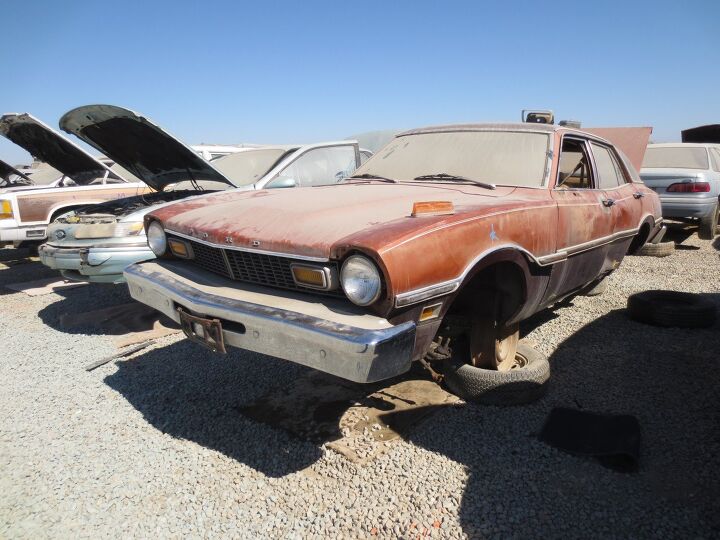#1977FordMaverick
Junkyard Find: 1977 Ford Maverick Sedan
You just don’t see Ford Mavericks and their Mercury Comet brethren on the street these days; they haven’t picked up a huge amount of collector interest and their place at the bottom of the just-above-scrap-value beater-car food chain has been replaced by the early Ford Taurus. For some reason, though, a steady trickle of Mavericks and Comets shows up in California wrecking yards. My guess, based on the 1980s and 1990s detritus I find in some of them, is that they spent a decade or three forgotten in a back yard or driveway before being sold to U-Wrench-It. So far in this series, we’ve seen this ’75 Maverick two-door, this ’75 Comet sedan, this ’77 Comet sedan, and now today’s ’77 Maverick sedan. Let’s examine this Malaise Mainstay more closely.
Junkyard Find: 1977 Mercury Comet Sedan
With a Ford Maverick sedan as yesterday’s Junkyard Find, it seemed only right that we follow up with the Maverick’s Mercury sibling (which I photographed in the same junkyard, on the same day). Today’s Malaise Era Ford is rough but more complete than yesterday’s car, so let’s crank up >one of the few good pop songs of 1977 and study this phenomenon.

















Recent Comments